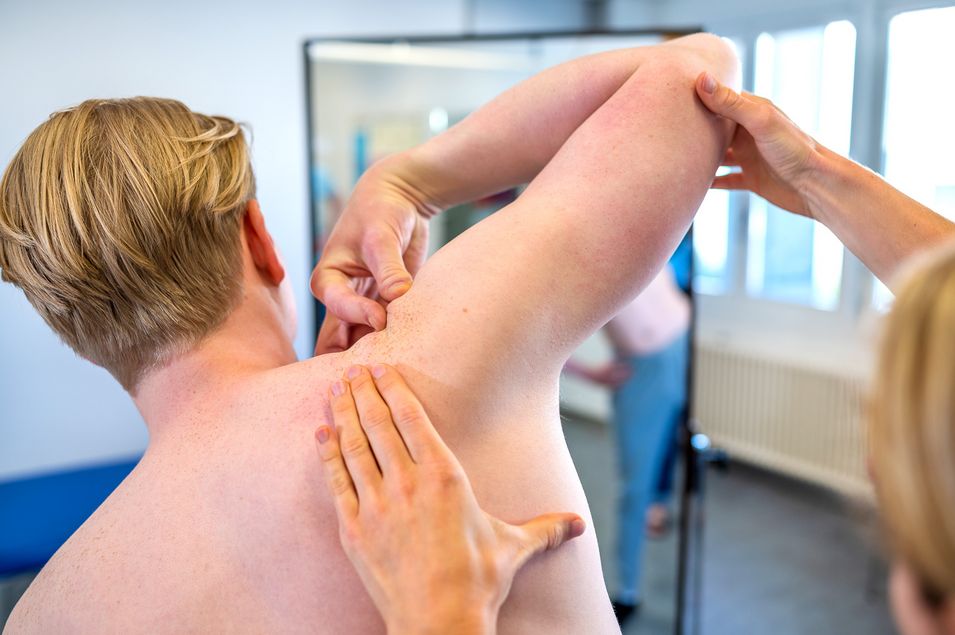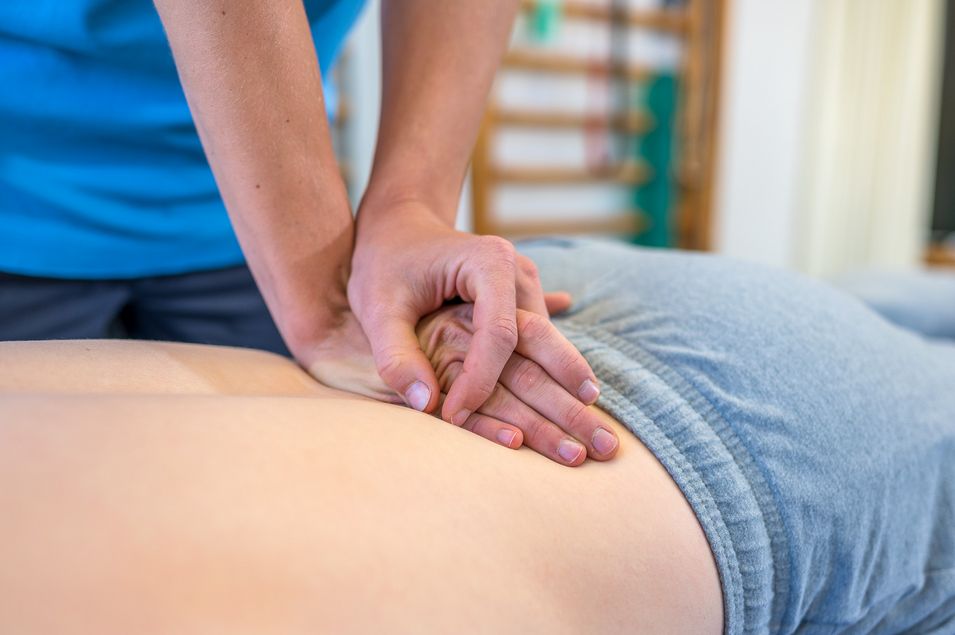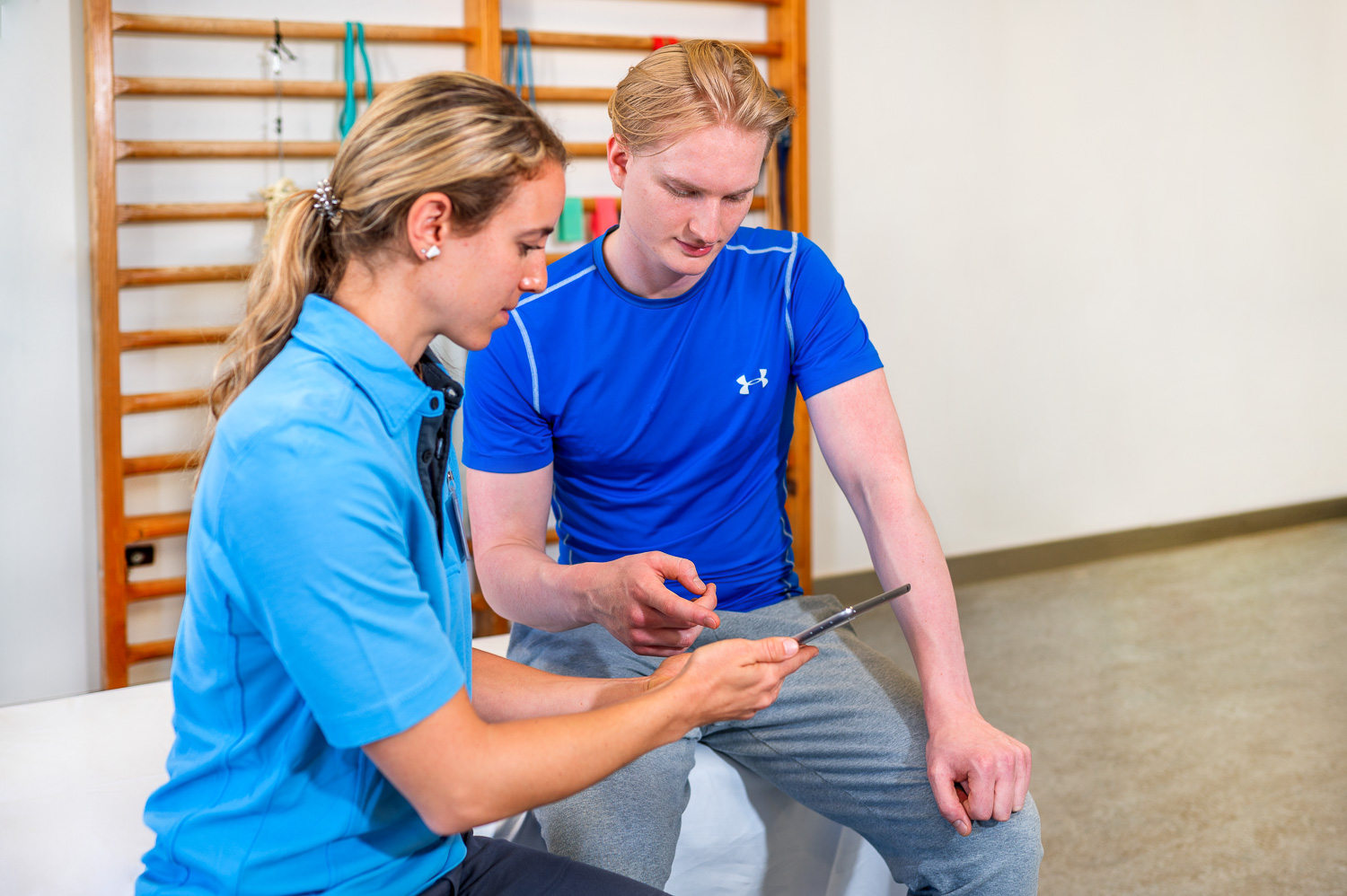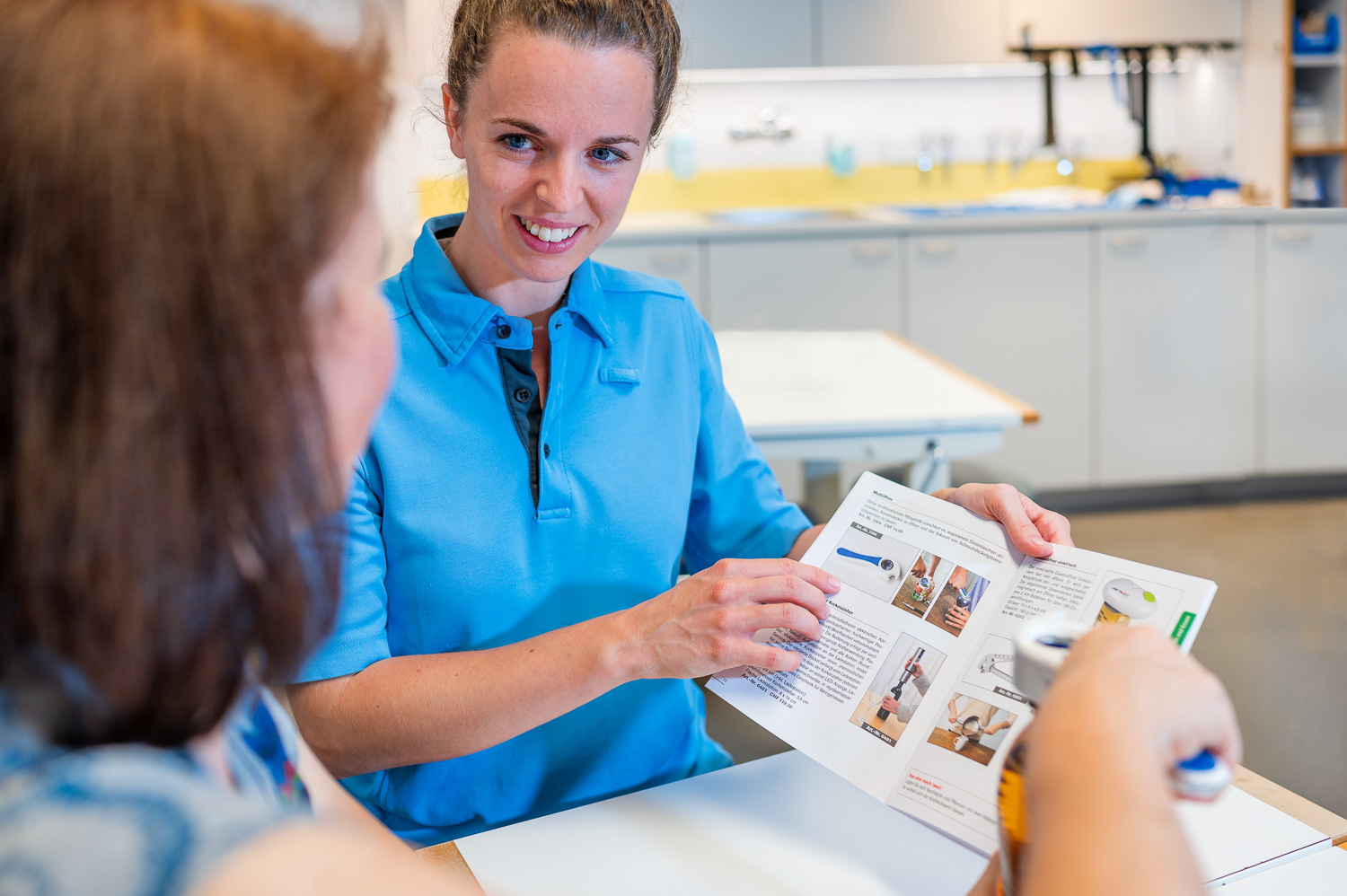Physiotherapy Spine, Rheumatology and Tumors
Our team consists of physiotherapists who are specialized in the orthopedic areas of the spine, physical medicine & rheumatology and tumors. We’re here to support you throughout the rehabilitation process following an operation, therapy or illness.
Spine Department
The spine is the support system for our skeleton and enables us to walk upright. It also protects the spinal cord, which is an important control center in our central nervous system. The many joints, ligaments, discs and muscles make the spine not only supportive and protective but also incredibly flexible.
Our physiotherapists are specialists in treating the spine – whether after an operation or due to widespread back pain. We use manual therapy and a range of exercise and treatment programs to help improve the stability of your spine.
Our offer in the area of spine
Individual therapy
After a thorough clinical examination, we advise and support you individually on rehabilitation for your spine complaints. Alongside the treatment itself, you’ll learn a lot about your body and how you can get it back to fitness. As we work closely together with the University Spine Center, we also know the latest operation techniques and can specifically deploy them as part of the rehabilitation process during physiotherapy.
Water therapy in small groups
The physical properties of water make movements easier and pain-free. Water therapy in the pleasant 34 °C temperature of the walking pool and 32 °C temperature of the sports pool is particularly suitable for increasing exertion in a gentle, controlled way.
Aqua jogging, for example, is ideal for training the core muscles. Aqua gymnastics improves the stability and mobility of your core. We offer both to our spinal column patients from Monday to Friday in groups with a maximum of 8 people.
Medical Training Therapy (MTT)
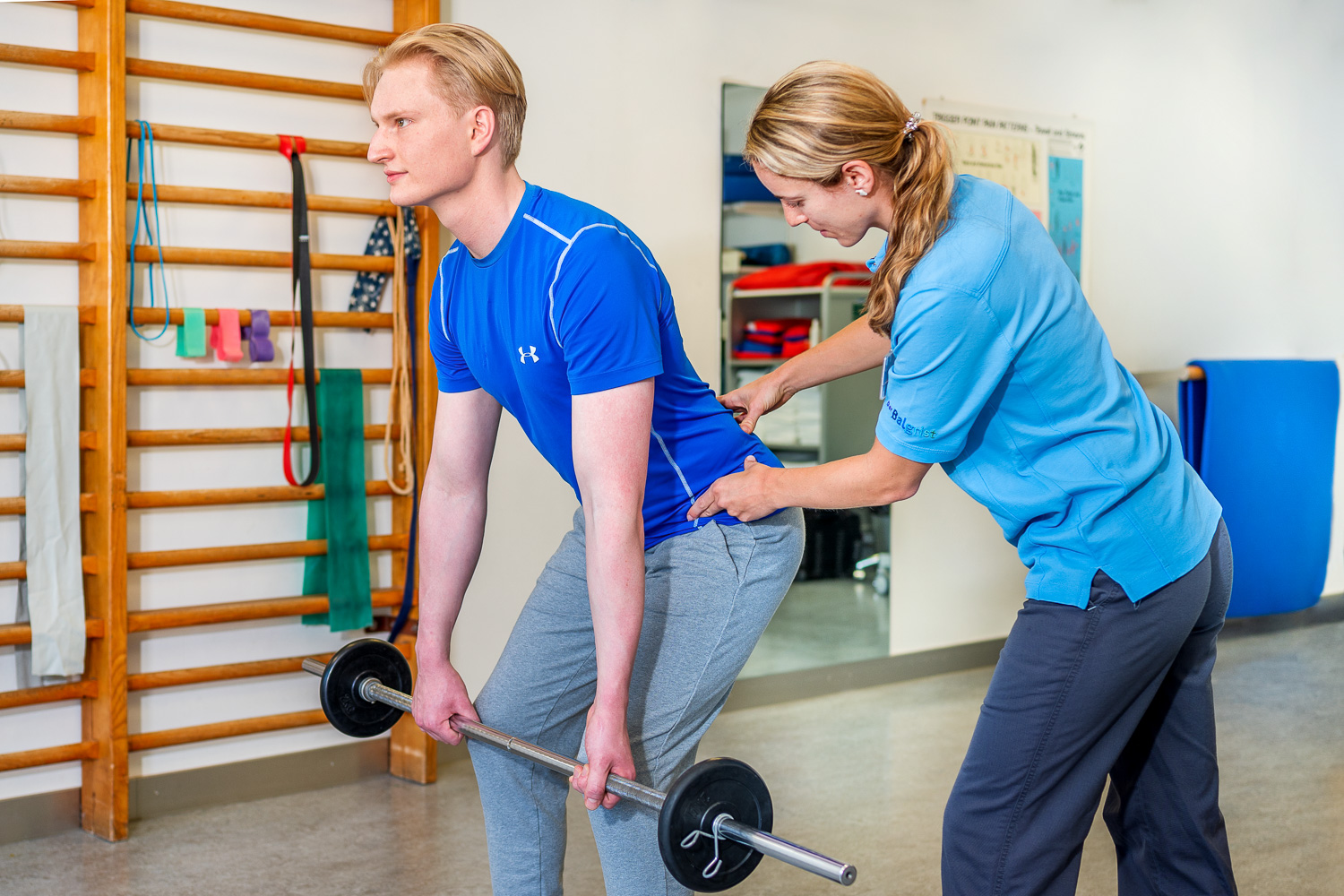
As soon as you feel more stable, have less pain and are more mobile, we can continue your treatment using Medical Training Therapy (MTT). A team of sports physiotherapists will take care of you. They know all about the physical and mental aspects of many different sports and will help you get back to your sporting activities. After successfully completing a therapy, it’s generally important to maintain the achieved form or continue to improve it. We therefore recommend that you train in our training center.
Physical Medicine and Rheumatology Department
Our physiotherapists are responsible for you if your symptoms and complaints of the locomotor system cannot be treated surgically e.g. rheumatism and pain syndromes such as CRPS (Complex Regional Pain Syndrome). We understand the complexity of long-term pain and place a lot of importance on reducing it. We address your personal needs and work together with other relevant medical departments as required.
Our offer in the area of physical medicine and rheumatology
Individual therapy
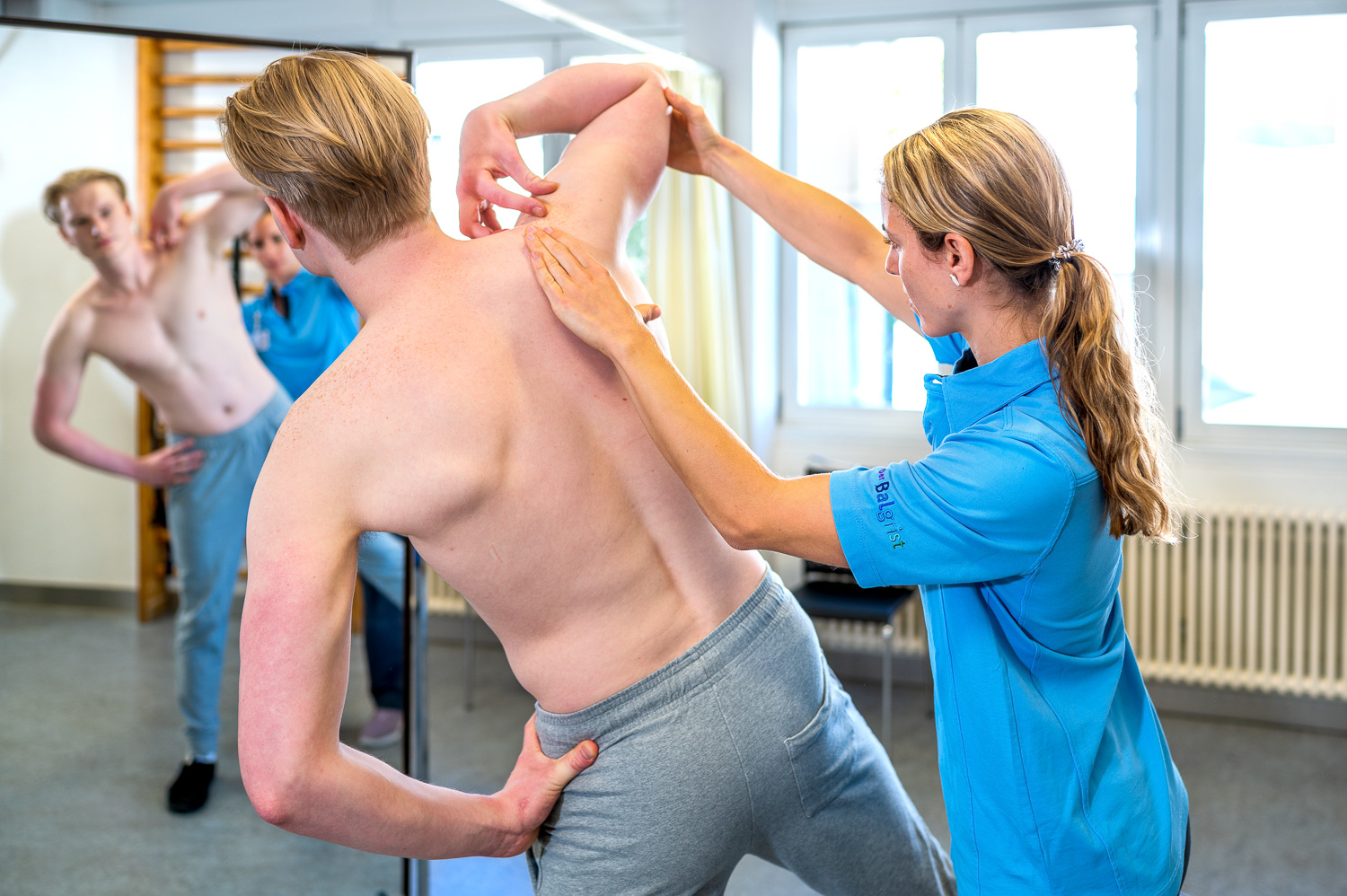
After a thorough clinical examination, we will advise and support you in achieving your personal health goals. The main focus lies on improving physical functionality, increasing performance and developing strategies for dealing with pain. Our specialties include manual therapy, pacing (gradual increase in exertion) or the “Motor Imagery Program” for improving awareness in CRPS patients.
Water therapy in small groups
The physical properties of water mean that movements are easier and less painful. Aqua jogging in the pleasant 34 °C temperature of the walking pool and 32 °C temperature of the sports pool is ideal for targeting the whole body. We use aqua gymnastics to improve torso stabilization and mobility. The courses take place Monday to Friday in groups with a maximum of 8 people.
Medical Training Therapy (MTT)
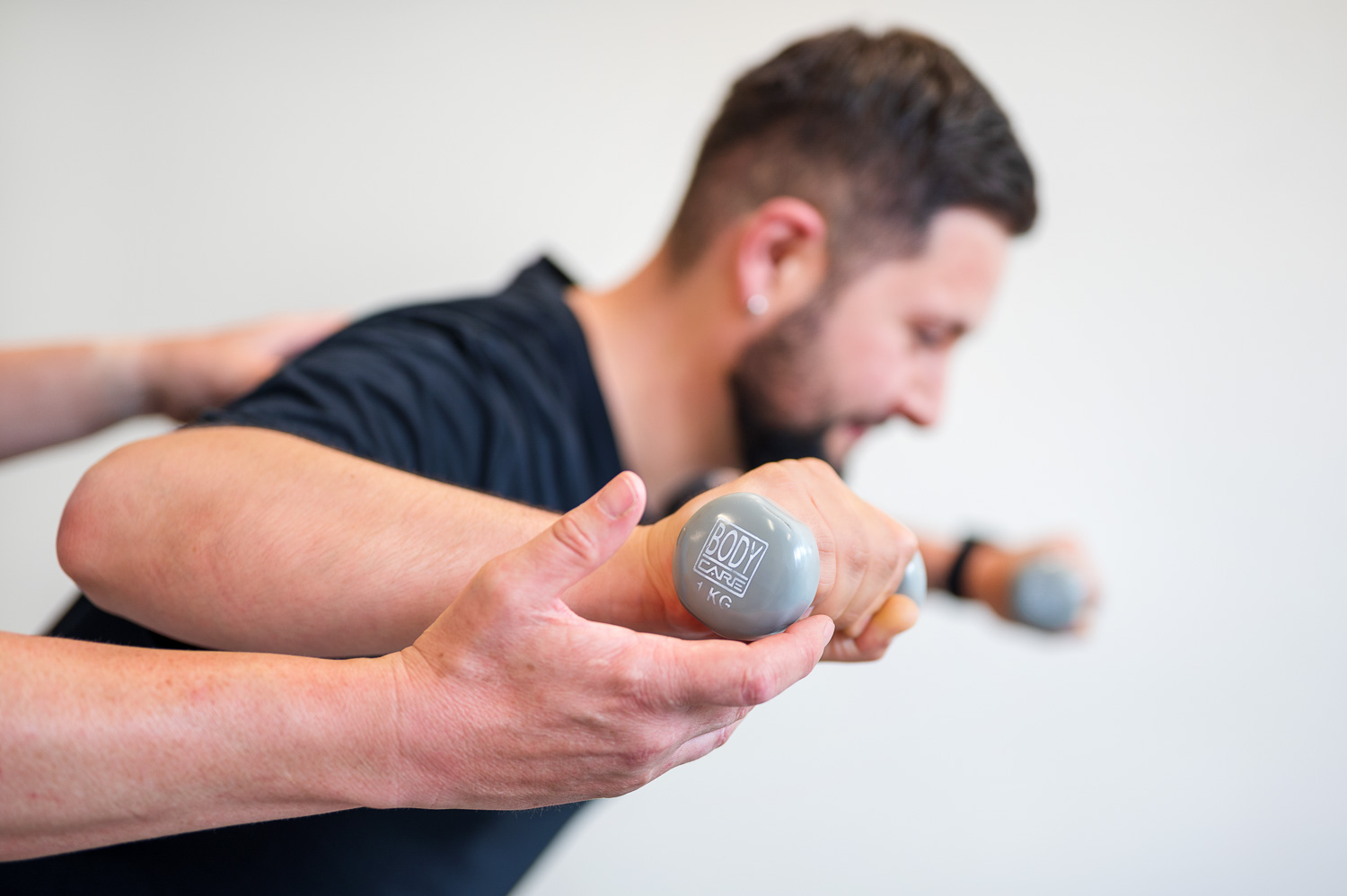
As soon as you feel more stable, have less pain and are more mobile, we can continue your treatment using Medical Training Therapy (MTT). A team of sports physiotherapists will take care of you and help you get back into the daily routine or even your sporting activities as quickly as possible.
After successfully completing a therapy, it’s generally important to maintain the achieved form or continue to improve it. We therefore recommend that you train in our training center.
“Understanding pain” course
In this theoretical course of 4 sessions, you’ll learn about pain psychology i.e. the causes and perception of pain in our body. We’ll also teach you helpful pain management strategies so that you can better manage your symptoms in daily life and improve your quality of life.
Tumor Department
After a tumor operation in the bones or soft tissue, we always agree the physiotherapy treatment with the responsible surgeon from the outset. Our therapists know all about the occasionally complex effects of tumors on the locomotor system. The entire network of disciplines at Balgrist University Hospital is available to us – and therefore you – at any time.
Our offer in the area of tumor treatment
Individual therapy
Tumor diseases and operations are very different and can affect virtually all body regions. That’s why the rehabilitation and physiotherapy don’t follow a set pattern but we instead provide you with specific and individual support and advice during the recovery process. You can rely on the knowledge of the experts throughout Balgrist University Hospital.
Water therapy in small groups
Movements are easier and less painful in water. The pleasant 34 °C temperature of the walking pool and 32 °C temperature of the sports pool are ideal for gently increasing exertion. Whereas aqua jogging is ideal for full body training, aqua gymnastics is perfect for improving torso stabilization and mobility. We offer our patients water therapies in groups with a maximum of 8 people from Monday to Friday.
Medical Training Therapy (MTT)
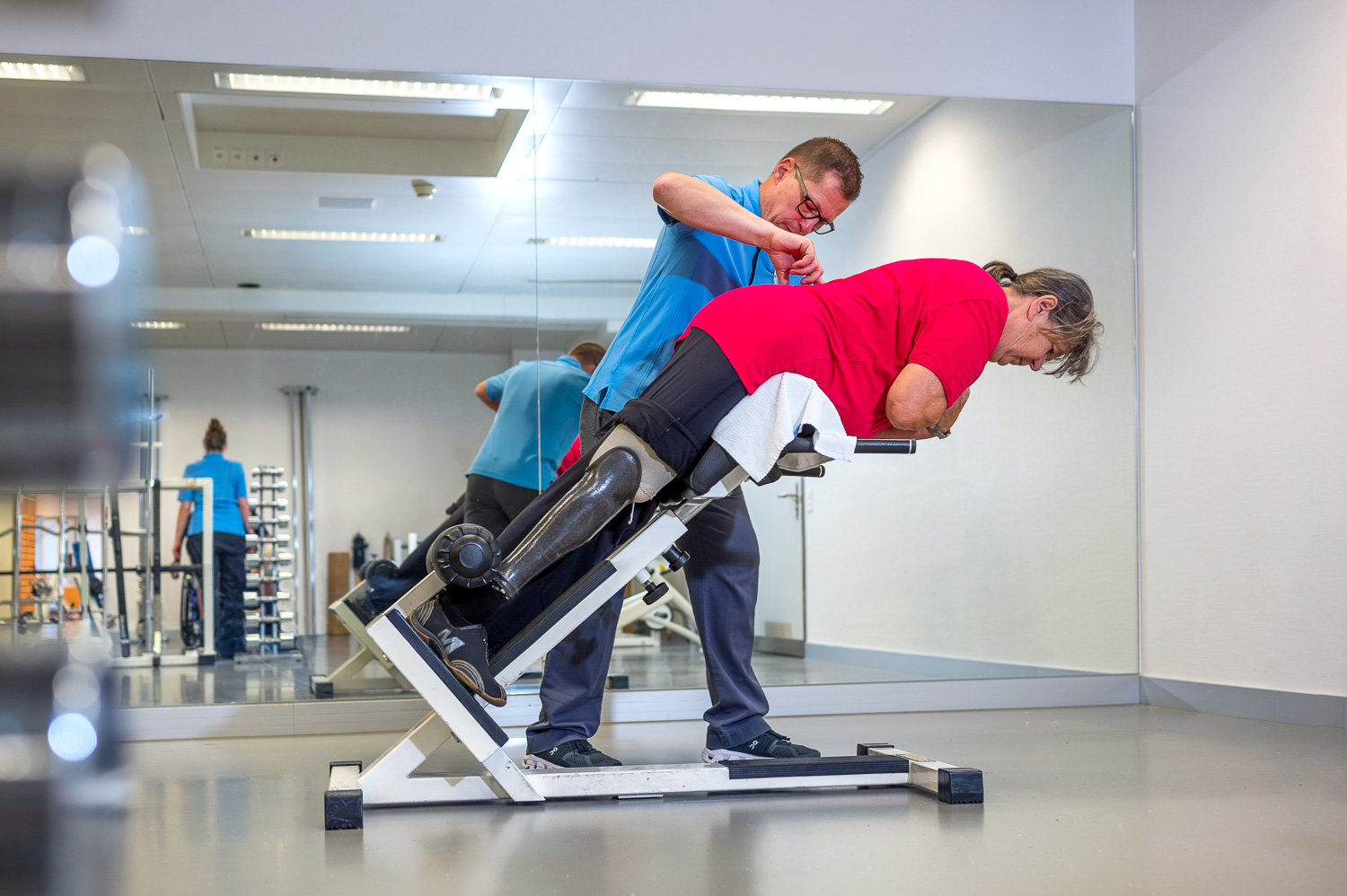
As soon as you have regained stability in your torso, become more mobile and have less pain, we can continue your treatment using Medical Training Therapy (MTT). Many of the sports therapists who will take care of you practice one or more sports themselves. They therefore know all about the physical and mental aspects of your discipline and target these, so that you can regain your strength and get back to your sporting activities.
After successfully completing a therapy, it’s generally important to maintain the achieved form or continue to improve it. We therefore recommend that you train in our training center.
Appointments
Would you like to make an appointment or do you have questions about an existing appointment?
Monday to Friday
7.30 a.m.–5 p.m.
+41 44 386 15 88
Email
Our expert
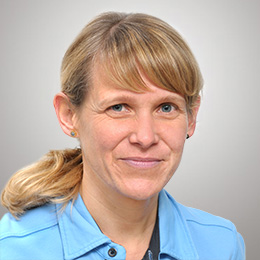
Evelyn Bärtschi
Specialist Team Leader Spine, Rheumatology and Tumors
Do you have questions about physiotherapy for spine, rheumatology and tumors?
Monday to Friday
7.30 a.m.–5 p.m.
+41 44 386 15 99
Email
Courses and Massages
Are you healthy and symptom-free? We want to keep it that way. That's why we offer you a range of courses, training sessions and medical massages that you can benefit from even without a doctor's prescription.
Referral
Monday to Friday
7.30 a.m.–5 p.m.
+41 44 386 15 88
Email
Therapy knowledge – spine, rheumatology and tumors
Autor: Evelyn Bärtschi, MAS Musculoskeletal Physiotherapy, Physiotherapist OMT SVOMP
“Understanding pain” – a course in pain physiology and management
Pain is one of the most common reasons for patients to undergo physiotherapy treatment. Research over the past decades has led to a significant increase in knowledge about the origin and perception of pain. Passing on this knowledge of neurophysiology to patients can help to reduce their pain and increase their resilience in daily life1, 2, 3. That’s why we offer a four-part course on pain physiology and management at Balgrist University Hospital. The theory sessions are based, among other things, on the “Explain Pain” concept1, 4 and the biopsychosocial model 5.
Pain physiology
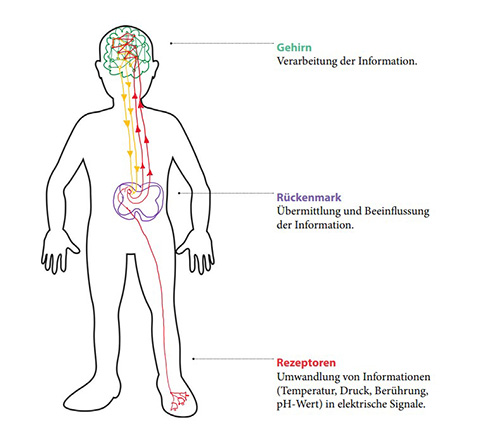
The somatosensory nervous system is responsible for how we perceive our surroundings and our own body and plays a role in the origin of pain. Participants on the course will learn about where pain originates, why it is important and which factors influence the sensitivity of the nervous system.
Pain management
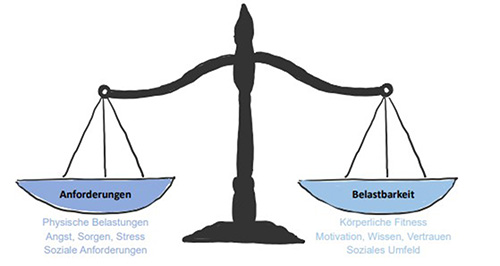
Staying healthy entails finding a balance between the requirements of daily life and the available resources. Enduring pain for a longer period of time often reduces resilience. During the course, patients learn about the pacing method6 as a way of increasing physical resilience. Other strategies for a better quality of life and dealing with pain will also be presented and discussed.
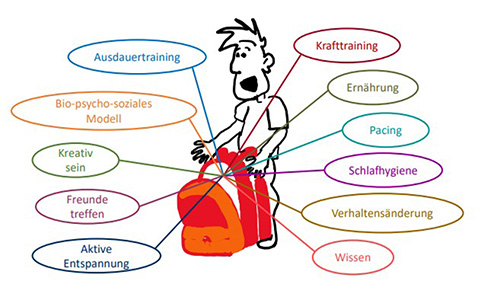
Suitable self-management strategies and a strong degree of self-efficacy are considered to be important when treating long-lasting pain7. By the end of the course, participants will therefore know which measures they can use to control their symptoms.
References
- 1Moseley G L, Butler D S. Explain Pain Supercharged. NOI Group Publishers. 2017.
- 2 Nijs J, van Wilgen C P, Van Oosterwijck J, van Ittersum M, Meeus M. How to explain central sensitization to patients with «unexplained» chronic musculoskeletal pain: Practice guidelines. Manual Therapy. 2011/10. 16/5:413-418.
- 3 Moseley, G. L. (2004). Evidence for a direct relationship between cognitive and physical change during an education intervention in people with chronic low back pain. European journal of pain, 8(1), 39-45.
- 4 Butler D, Moseley LG. Schmerzen verstehen. Springer. 2016.
- 5 Engel G L. The Need for a New Medical Model: A Challenge for Biomedicine. Science. 1977/4. 196/4286:129-136.
- 6 Scott-Dempster C, Toye, F, Truman J, Barker K. Physiotherapists’ experiences of activity pacing with people with chronic musculoskeletal pain: an interpretative phenomenological analysis. Physiotherapy Theory and Practice. 2014. 30/5:319-328.
- 7 Jackson T, Wang Y, Wang Y, Fan H. Self-efficacy and chronic pain outcomes: A meta-analytic review. The Journal of Pain. 2014/5. 15/8:800-814.
Would you like to register for the course "Understanding Pain" or would you like more information?
Monday to Friday
7.30 a.m.–5 p.m.
+41 44 386 15 88
E-Mail

